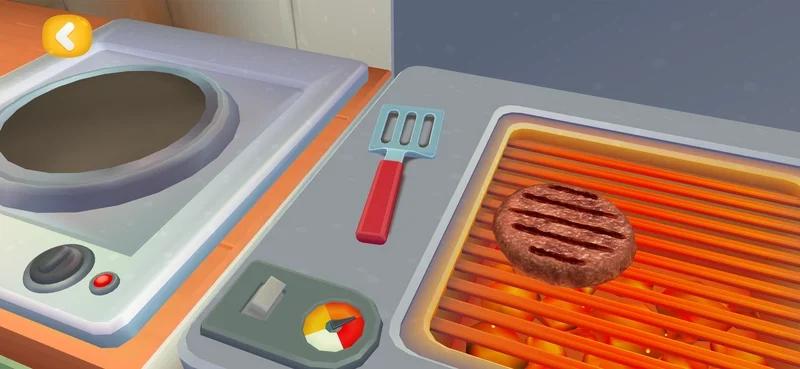Designing a Stress-Free Game
In our previous post, we shared how we built a “playable cartoon” look and feel in Food Festival 3, our cozy burger maker and cooking simulator. Today, we’d like to dive into a topic we found even more challenging in mobile game development: how to design an engaging game loop that stays stress-free — especially for kids cooking games and family games.
The Problem with Most Cooking Games
Many cooking games, restaurant games, or kitchen simulators rely on strict timers, failing customers, and penalties to create challenge. While that can work for hardcore players or time management games, we saw how it turned away younger audiences — especially in kids games and toddler games.
Kids can feel anxious about “failing” a burger cooking game or missing a dish in a cooking game for girls. Parents told us they didn’t want frustration over a free cooking game. We realized that pressure-based loops didn’t align with our goal: to create a warm, animated cooking game for kids, almost like a culinary playground.
Core Principles We Followed
✅ No harsh fail states
Players never see a big red “YOU FAILED” — a common trope in other cooking simulator games. If they miss an order, the game gently encourages them to try again. It’s perfect for children cooking games and educational games where failure shouldn’t feel final.
✅ Soft time incentives
Yes, we use timers — but only to gently encourage faster play. The burger, pizza, or breakfast dish still gets made, but quicker cooking earns a small bonus. It keeps gameplay light and fun — ideal for kids cooking, preschool games, and learning games.
✅ Positive reinforcement
Every meal — even a slightly messy hamburger or veggie burger — gets celebrated. Players hear, “You did it! Next time, let’s do even better!” This approach works beautifully in burger cooking games for kids, cooking mania apps, and kitchen games where joy matters more than perfection.
✅ Low cognitive load
Levels are short and approachable. Complexity builds gradually — essential for 3 year old games, kindergarten games, and even nursery games. No overcomplicated mechanics. Just fun, focused cooking for kids.
Challenging gameplay doesn’t have to mean stressful gameplay. You can build a cooking world where kids learn, laugh, and explore without pressure. It’s harder to design — but the reward is a better cooking education experience, stronger player satisfaction, and a brand that makes parents and kids smile.

